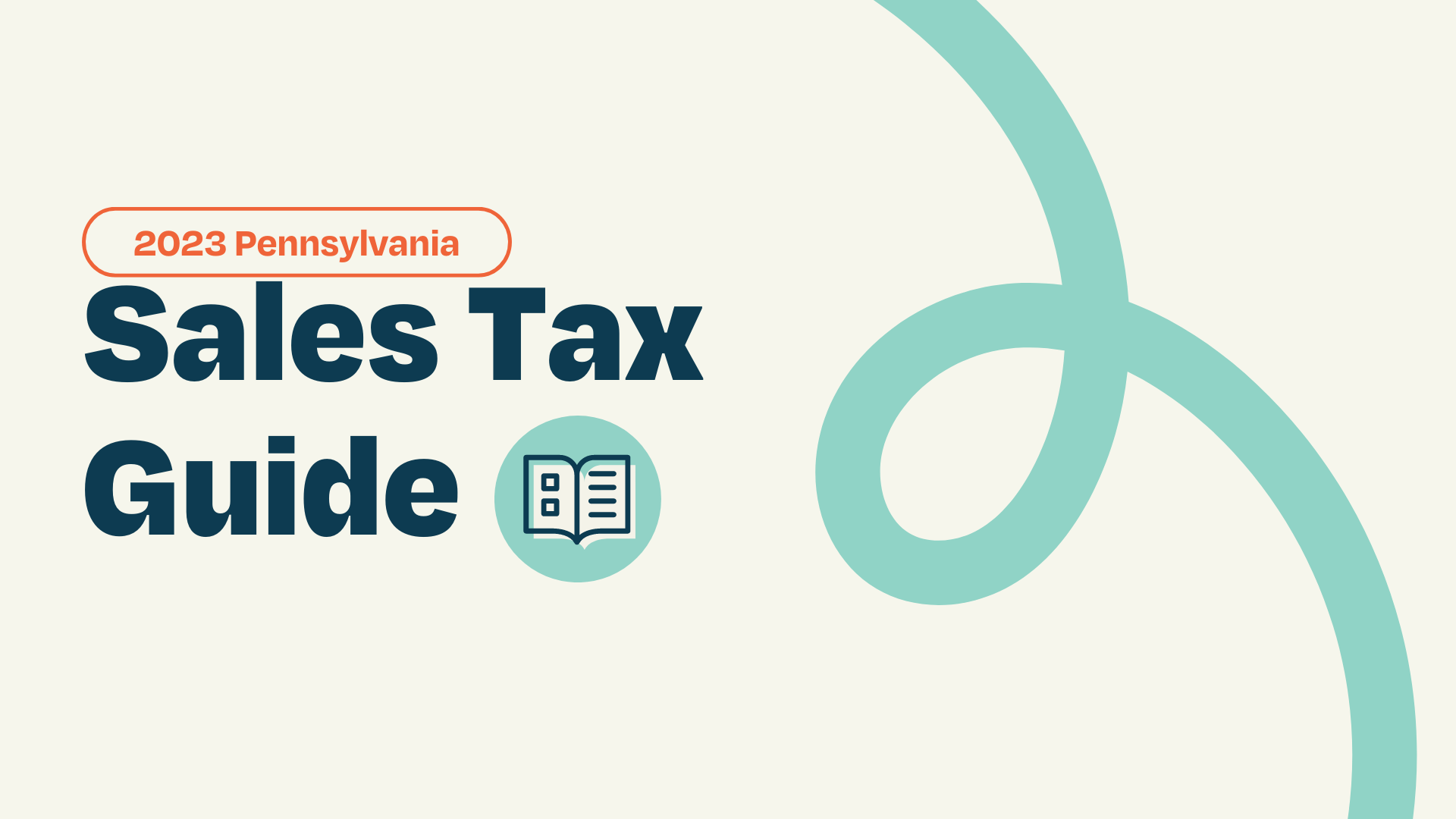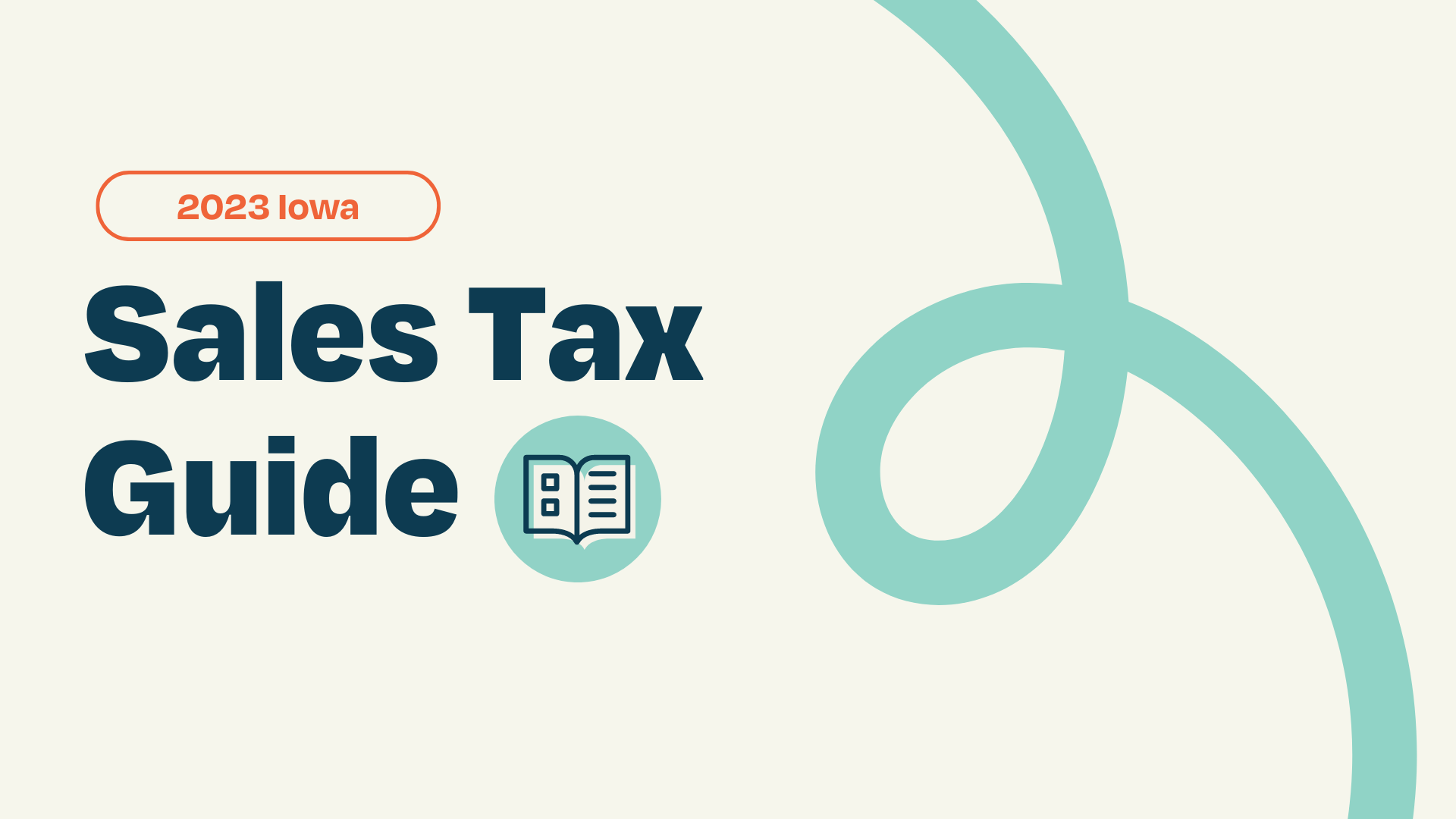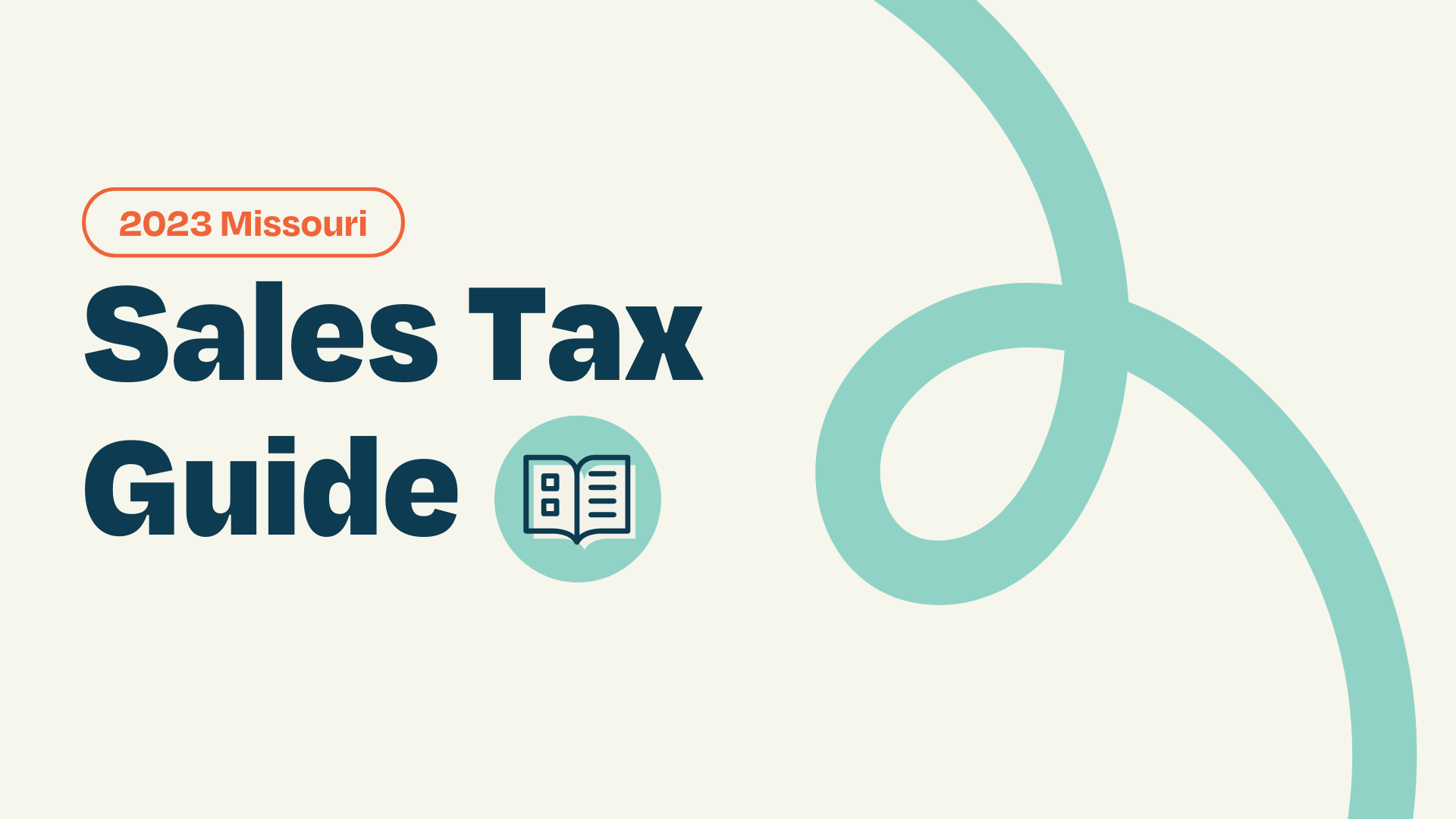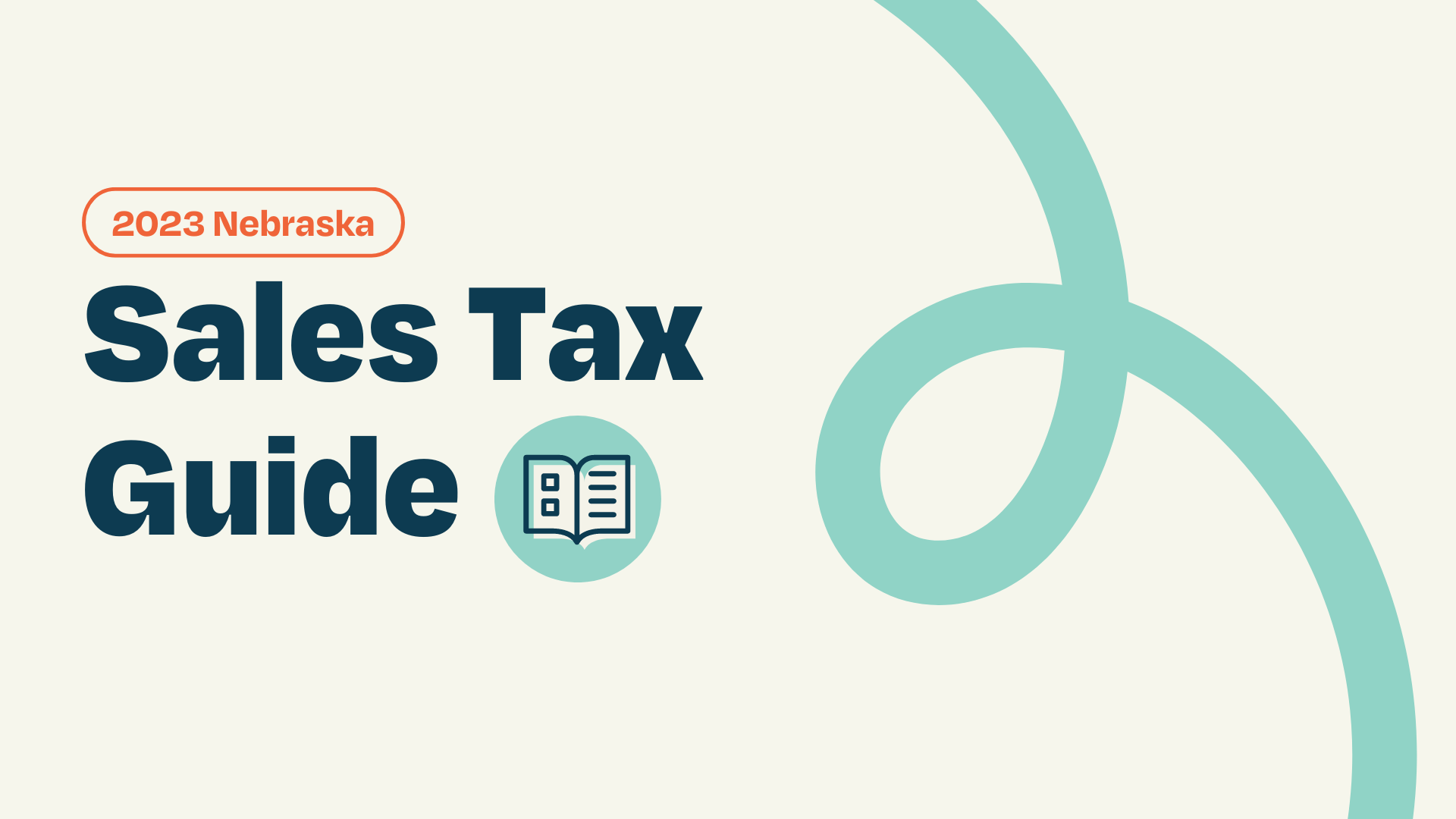2023 Iowa Sales Tax Guide
Iowa Sales Tax in a Word Welcome to the ultimate guide for all things Iowa Sales Tax! In this comprehensive blog, we'll wade through the cornfields...

Hey there, fellow Pennsylvania business owners! We know that dealing with sales taxes can feel like navigating a maze, but fear not – we're here to help! In this blog post, we're going to guide you through the ins and outs of filing and paying sales tax returns in the Keystone State.
We'll cover everything from filing frequencies and deadlines to penalties and incentives, all while keeping things light-hearted and easy to understand. Plus, we'll share some handy tips to help you avoid common mistakes and make the filing process a breeze. So, grab a cup of coffee, sit back, and let's dive into the world of Pennsylvania sales tax returns – together!
|
Table of Contents |
Navigating the world of sales tax can be challenging, but knowing who to reach out to for assistance can make all the difference. In this section, we'll introduce you to the organization responsible for managing Pennsylvania sales tax and provide their contact information, so you know exactly where to turn when you need help.
The Pennsylvania Department of Revenue oversees sales tax administration and compliance in the Keystone State. This government agency is responsible for ensuring that businesses collect and remit the correct amount of sales tax, providing guidance on sales tax rules and regulations, and offering support to taxpayers.
Here's the contact information for the Pennsylvania Department of Revenue:
|
Mailing Address |
Pennsylvania Department of Revenue Bureau of Business Taxpayer Accounting PO Box 280901 Harrisburg, PA 17128-0901 |
|
Phone Numbers |
Sales Tax Information: (717) 787-1064 Taxpayer Service & Information Center: (717) 787-8201 |
|
|
To submit a question to the Pennsylvania Department of Revenue, use their online contact form. |
|
Website |
One of the most crucial aspects of understanding your sales tax obligations is determining whether your business has nexus in Pennsylvania. Nexus, in the sales tax context, means that your business has a significant enough connection to the state that it's required to collect and remit sales tax. Let's explore the various types of nexus that can apply to your business in Pennsylvania.
There are several ways a business can establish sales tax nexus in Pennsylvania, including physical, economic, affiliate, click-through, and marketplace nexus. It's essential to familiarize yourself with these different types of nexus to ensure you're meeting your sales tax responsibilities.
Physical nexus occurs when your business has a tangible presence in the state, such as:
Having a brick-and-mortar location, like an office or store
Owning or leasing property, including warehouses or inventory storage facilities
Employing Pennsylvania residents or maintaining a sales force within the state
If your business has a physical presence in Pennsylvania, you'll need to collect and remit sales tax on taxable sales made within the state.
Economic nexus is established when a business reaches a certain threshold of sales or transactions within the state, even if they don't have a physical presence. In Pennsylvania, economic nexus is triggered if, during the previous 12-month period, your business has:
Made over $100,000 in gross sales in Pennsylvania, or
Completed more than 200 separate transactions within the state
If your business meets either of these thresholds, you'll be required to collect and remit Pennsylvania sales tax.
Affiliate nexus occurs when a business has a relationship with an in-state entity that helps promote or facilitate sales within the state. In Pennsylvania, affiliate nexus is established if your business has:
A parent company, subsidiary, or other related entity with a physical presence in the state that helps promote, sell, or facilitate sales
An in-state representative who refers customers, solicits business, or provides customer support on your behalf
If your business has affiliate nexus in Pennsylvania, you'll be required to collect and remit sales tax.
Click-through nexus is established when an out-of-state business has a relationship with an in-state entity that generates sales through online referrals. Pennsylvania has not enacted specific click-through nexus legislation, so click-through nexus alone doesn't trigger a sales tax collection requirement in the state.
Marketplace nexus occurs when a business sells products through a third-party online marketplace, such as Amazon or eBay. In Pennsylvania, marketplace facilitators (like Amazon) are required to collect and remit sales tax on behalf of their third-party sellers, regardless of whether the seller has nexus in Pennsylvania.
Yes, Pennsylvania imposes a use tax on items purchased from out-of-state sellers for use, storage, or consumption within the state when sales tax hasn't been collected. The use tax rate is the same as the sales tax rate and is meant to level the playing field for in-state and out-of-state businesses. Pennsylvania residents and businesses are responsible for reporting and remitting use tax on applicable purchases.
Before you can start collecting sales tax in Pennsylvania, you'll need to register your business with the state. This process may seem overwhelming, but don't worry—we're here to guide you through the registration process step by step, making it as seamless as possible. In this section, we'll cover how to register for sales tax in Pennsylvania, the costs involved, and whether you'll need a Federal Tax ID Number or EIN. We'll also touch on any additional agencies you might need to register with in the state.
Registering for a sales tax license in Pennsylvania is straightforward and can be done online or by mail. Let's dive into the details of how to register your business for sales tax in the Keystone State.
Gather your business information: Before you start, make sure you have all the necessary information about your business, including your legal business name, business structure, owner or officer information, business location, and Federal Tax ID Number (EIN) if applicable.
Choose your registration method: You have two options to register for a Pennsylvania sales tax license—online or by mail.
Online: The simplest and quickest method is to register online using the Pennsylvania Department of Revenue's e-TIDES portal. Click on "Register a New Business" and follow the prompts to complete the registration process.
By mail: If you prefer a paper application, you can download and complete the Pennsylvania Enterprise Registration Form (PA-100). Once you've filled out the form, mail it to the address provided on the form.
Wait for your sales tax license: After submitting your registration, the Pennsylvania Department of Revenue will review your application. Once approved, they'll send you a sales tax license, also known as a Sales, Use, and Hotel Occupancy Tax License. This process usually takes 7-10 business days for online applications and 2-3 weeks for mailed applications.
Display your license: Once you receive your sales tax license, be sure to display it prominently at your place of business. If you operate online, you should keep the license in your records.
Start collecting sales tax: With your sales tax license in hand, you're now ready to collect sales tax on taxable sales made in Pennsylvania.
Good news! There is no fee to register for a Pennsylvania sales tax license. That's one less expense to worry about as you work on getting your business set up to collect sales tax.
Yes, you'll need a Federal Tax ID Number, also known as an Employer Identification Number (EIN), to register for a Pennsylvania sales tax license. The EIN is a unique nine-digit number assigned to your business by the Internal Revenue Service (IRS). If you don't already have an EIN, you can apply for one for free through the IRS website.
Depending on your business type and activities, you may need to register with additional agencies in Pennsylvania. Some common agencies businesses might need to register with include:
Pennsylvania Department of State: If your business is a corporation, limited liability company (LLC), or a limited partnership, you'll need to register with the Pennsylvania Department of State.
Pennsylvania Department of Labor & Industry: If you have employees in Pennsylvania, you'll need to register with the Pennsylvania Department of Labor & Industry for unemployment insurance and workers' compensation coverage.
Local agencies: Depending on your business location and activities, you might also need to register with local agencies, such as city or county tax offices, zoning boards, or health departments.
Taking the time to properly register your business for sales tax in Pennsylvania is a crucial step in maintaining compliance with state tax laws. By following the steps outlined above and staying informed about any additional registration requirements, you can ensure your business is well-prepared to collect and remit sales tax in the Keystone State.
Once you've registered for a sales tax license in Pennsylvania, it's time to start collecting sales tax from your customers. But how do you know how much to charge and what products or services are subject to sales tax? Don't worry—we've got you covered. In this section, we'll discuss whether Pennsylvania is an origin or destination sales tax state, which sales are subject to sales tax, and exemptions you should be aware of.
Pennsylvania is an origin-based sales tax state. This means that you should charge sales tax based on the location of the business, not the location of your customer. In other words, if you're shipping a product to a customer in Pennsylvania, you'll need to determine the total sales tax rate based on your business address, including state, county, and local tax rates.
In Pennsylvania, sales tax applies to the retail sale, lease, or rental of most tangible personal property and some services. Here are some examples of taxable items and services:
Clothing (with some exceptions, such as formal wear, sports clothing, and protective clothing)
Motor vehicles, boats, and aircraft
Furniture and home furnishings
Electronics
Prepared food and beverages
Admission to places of amusement, sports events, and recreational facilities
Hotel accommodations
Some personal services, such as dry cleaning, pest control, and lawn care
Yes, Software as a Service (SaaS) is subject to sales tax in Pennsylvania. The state considers SaaS a taxable service since it involves the use of software that is accessed remotely.
There are several items and services that are exempt from sales tax in Pennsylvania, including:
Groceries (except for some prepared foods and beverages)
Prescription drugs and medical devices
Newspapers and magazines
Textbooks used in schools and colleges
Sales to the federal government, the state of Pennsylvania, and its political subdivisions
Sales to nonprofit organizations for educational, religious, or charitable purposes
Sales of property for direct use in farming, dairying, or agriculture
Certain organizations and individuals may be eligible for sales tax exemptions in Pennsylvania, including:
Nonprofit organizations that qualify for educational, religious, or charitable purposes
Federal and state government agencies
Schools and colleges
Farmers purchasing items for direct use in farming, dairying, or agriculture
If a customer is exempt from sales tax in Pennsylvania, you'll need to obtain a valid exemption certificate from them to document the tax-exempt sale. The most common exemption certificate in Pennsylvania is the Pennsylvania Exemption Certificate (REV-1220). Make sure to keep the completed certificate in your records, as you may need to provide it in case of a sales tax audit.
If you lose a Pennsylvania sales tax exemption certificate, it's important to contact the customer who provided it and ask for another copy. If you're unable to obtain a new copy, you could be held liable for the sales tax on that transaction during a sales tax audit. To prevent this, make sure to store exemption certificates securely and maintain accurate records.
Understanding the ins and outs of collecting sales tax in Pennsylvania is crucial for your small business. By staying informed about tax rates, taxable items and services, and exemptions, you can ensure your business remains compliant with Pennsylvania sales tax laws and avoid any potential pitfalls.
After you've collected sales tax from your customers, it's time to file and pay those taxes to the Pennsylvania Department of Revenue. This process can seem daunting, but with the right knowledge and tools, you can easily navigate the filing and payment process. In this section, we'll discuss when and how to file your sales tax returns, what to do if a filing date falls on a weekend or holiday, potential penalties, and any available incentives.
The frequency at which you'll need to file and pay sales tax in Pennsylvania depends on your business's sales tax liability. Pennsylvania has three filing frequencies: monthly, quarterly, and semi-annually.
The filing frequency and dues dates are as follows:
|
Monthly Filing |
Licensees whose actual tax liability is less than $25,000, but greater than $600 per quarter, must file monthly. |
Monthly returns are due by the 20th of the following month. |
|
Quarterly Filing |
Licensees whose total tax liability is less than $600 in the third calendar quarter, but greater than $300 annually, must file quarterly. |
Quarterly returns are due by the 20th of the month following the end of the quarter. |
|
Semi-Annual Filing |
Licensees whose total tax liability is $300 or less annually must file semi- annually.
|
The report for January through June is due on Aug. 20, and the report for July through December is due Feb. 20 of the following year. |
If a Pennsylvania sales tax filing date falls on a weekend or holiday, the due date is extended to the next business day.
Filing your Pennsylvania sales tax return is a straightforward process that can be done online or by mail. Let's explore the different methods and the steps involved in each.
Log in or create an account: To file your sales tax return online, you'll need to log in to your e-TIDES account. If you don't have an account, you'll need to create one by visiting the e-TIDES portal and clicking on "Sign up for e-TIDES."
Select the correct tax type: Once logged in, navigate to the "File Returns" section and choose "Sales, Use, and Hotel Occupancy Tax" as the tax type.
Enter your sales data: You'll be asked to provide information about your total taxable sales, exempt sales, and the amount of sales tax collected. Make sure to have your sales records handy to accurately complete this step.
Review and submit your return: Before submitting your return, double-check all the information to ensure accuracy. Once you're confident everything is correct, submit your return.
Pay your sales tax: After submitting your return, you'll be prompted to pay the sales tax you owe. You can pay online using ACH debit, credit card, or e-check.
Obtain the correct form: To file your sales tax return by mail, you'll need to use the Pennsylvania Sales, Use, and Hotel Occupancy Tax Return (PA-3). This form can be downloaded from the Pennsylvania Department of Revenue's website.
Complete the form: Fill in the necessary information, including your sales tax license number, business name, address, reporting period, total taxable sales, exempt sales, and sales tax collected.
Mail your return: Once you've completed the form, mail it to the address indicated on the form, along with a check or money order for the sales tax due.
Keep a copy for your records: It's always a good idea to keep a copy of your filed sales tax returns for your records.
Failing to file or pay your sales tax on time can result in penalties and interest charges. Here are some common penalties for sales tax violations in Pennsylvania:
Late filing: A penalty of 5% of the unpaid tax per month (or fraction of a month) can be assessed, up to a maximum of 25%.
Late payment: A penalty of 5% of the unpaid tax can be assessed.
Underpayment: A penalty of 50% of the underpayment can be assessed if the underpayment is due to negligence or fraud.
Interest: Interest is charged on unpaid taxes and penalties, calculated from the due date of the return until the date the taxes are paid.
Yes, Pennsylvania offers sales tax incentives to encourage economic development and growth within the state. Some of these incentives include:
Keystone Opportunity Zones (KOZ): Businesses located within designated KOZ areas may be eligible for a variety of tax incentives, including sales tax exemptions on certain purchases.
Manufacturing and Processing Exemption: Businesses engaged in manufacturing or processing may qualify for a sales tax exemption on the purchase of machinery, equipment, and supplies used directly in the manufacturing or processing operation.
Research and Development (R&D) Sales Tax Exemption: Businesses conducting R&D may be eligible for a sales tax exemption on the purchase of equipment, machinery, or supplies used for research and development purposes.
Building Materials Sales Tax Exemption: Certain construction materials and supplies purchased for use in the construction or renovation of a qualified business facility may be exempt from sales tax.
To take advantage of these incentives, businesses must meet specific criteria and apply for the exemption through the appropriate channels. Make sure to consult with a tax professional or the Pennsylvania Department of Revenue to determine if your business qualifies for any sales tax incentives.
In conclusion, understanding the process of filing and paying sales taxes in Pennsylvania is essential to keeping your business compliant and avoiding penalties. By staying informed about filing frequencies, deadlines, and available incentives, you can ensure your business remains on the right track and continues to thrive in the great state of Pennsylvania.
Filing Pennsylvania sales tax returns can be a breeze if you're well-prepared and know how to avoid common pitfalls. Here are five tips to help you steer clear of mistakes when filing your sales tax returns:
Maintaining accurate records of your sales transactions, including taxable and exempt sales, is crucial to filing accurate sales tax returns. Invest in good accounting software or work with a professional accountant to ensure all your transactions are properly recorded and categorized. This will not only help you avoid errors when filing but also make it easier to produce the required documentation during an audit.
Tax rates and rules are subject to change, and it's your responsibility to stay updated on any changes that may impact your business. Regularly check the Pennsylvania Department of Revenue's website for updates or engage with a knowledgeable tax professional to keep you informed. This will help you avoid underpaying or overpaying sales tax due to outdated information.
Missing a filing deadline can result in late filing penalties and interest charges. To avoid this, mark the relevant due dates on your calendar and set reminders to ensure you file and pay your sales tax on time. Remember that filing frequencies vary based on your sales tax liability, so double-check the frequency that applies to your business and plan accordingly.
Pennsylvania offers various sales tax exemptions and deductions, such as those for manufacturing and processing, research and development, and sales made in designated Keystone Opportunity Zones. Make sure you're correctly identifying and documenting exempt sales on your sales tax return. If you're unsure whether a transaction qualifies for an exemption, consult with a tax professional or the Pennsylvania Department of Revenue for guidance.
Before submitting your sales tax return, take a moment to review all the information you've entered. Double-check your sales data, exemption claims, and tax calculations to ensure everything is accurate and complete. This extra step can help you catch and correct errors before they become a problem and save you from potential penalties and interest charges.
By following these five tips, you can avoid common mistakes and make the process of filing your Pennsylvania sales tax returns smoother and more efficient. Remember, staying informed, organized, and proactive is the key to maintaining sales tax compliance and ensuring your business continues to thrive.
And there you have it, folks! Filing and paying your Pennsylvania sales tax returns doesn't have to be a headache. With the right knowledge, organization, and attention to detail, you can confidently tackle the process and keep your business compliant.
Remember, we're all in this together, and as fellow small business owners, we understand the challenges you face. We hope this guide has provided you with valuable insights and helpful tips to make sales tax returns one less thing to worry about. So, let's raise a toast to your continued success in the great state of Pennsylvania – cheers to thriving businesses and stress-free sales tax returns!
|
Ready to work with a Pennsylvania sales tax expert? We've love to work with you! |
|
Alaska Sales Tax Guide (N/A) |
||||
|
Montana Sales Tax Guide (NA) |
||||
|
Oregon Sales Tax Guide (N/A) |
||||
|
Delaware Sales Tax Guide (N/A) |
||||
|
New Hampshire Sales Tax Guide (NA) |
||||
And don't forget to check out our blog about Economic Nexus, which serves as an invaluable resource for businesses who have sales that are subject to sales tax.
This blog is for informational purposes only and the information is accurate as of 2023-06-19. If you want legal advice on sales tax law for your business, please contact a State and Local Tax (SALT) professional. Keep in mind that sales tax regulations and laws are subject to change at any time. While we strive to keep our blog current, this blog possibly may be out of date by the time you review it.

Iowa Sales Tax in a Word Welcome to the ultimate guide for all things Iowa Sales Tax! In this comprehensive blog, we'll wade through the cornfields...

1 min read
Missouri Sales Tax in a Word Running a successful small business involves juggling a myriad of responsibilities, and one of the most important...

1 min read
Nebraska Sales Tax in a Word Welcome to the world of sales tax in Nebraska! As a small business owner, you've likely discovered that...